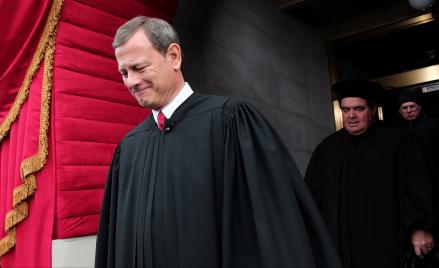Chief Justice Roberts’ opinion in Shelby County v. Holder, the Voting Rights Act case, is a pretty lame piece of work. There is a longstanding constitutional norm of judges deferring to Congress. Courts strike down laws when they violate rights or exceed Congress’ power. But Section 5 of the Voting Rights Act, which requires nine states in the South (and other scattered places) to get approval from the Justice Department before changing their election laws, doesn’t violate anyone’s rights. It’s the type of legislation specifically authorized by the 15th Amendment of the Constitution, which says the right to vote “shall not be abridged” because of race or color. Roberts says that the singling out of Old South states, for what’s called “preclearance” by DoJ, makes little sense now that blacks are as likely to register to vote as whites in those states, or nearly so. But Congress passes hundreds of statutes that are based on weak evidence, and courts routinely uphold them. Roberts doesn’t even try to argue that the costs imposed on states by the preclearance part of the Voting Rights Act exceed the benefits for people who would otherwise be deprived of the vote, which is what would be minimally necessary to show that the law does not advance the public good.
Instead, Roberts focuses on the offense to the sovereignty of states and a newly invented idea he calls the “fundamental principle of equal sovereignty.” State sovereignty means that the federal government should not intrude on political decision-making of states, including, Roberts says, their election laws; equal sovereignty means that when it does, it should intrude equally—on all of the states to the same degree.
But neither of these principles can explain where Roberts ends up. The idea of state sovereignty is riddled with exceptions and is largely a joke these days. The federal government calls the shots, and the states obey, in the area of elections as much as in any other. Roberts accepts the constitutionality of Section 2 of the Voting Rights Act, which forbids states to discriminate against minority voters and in this way also intrudes on state control over their elections. (Section 2 wasn’t at issue in the case the court decided Tuesday, so it’s alive and well. But it relies on lawsuits, not preapproval by the Justice Department, to ensure the rights of minority voters.) If Section 2 does not violate the Constitution, then what is special about Section 5—which also forbids discrimination? From the standpoint of state autonomy, Roberts’ argument does not wash.
That leaves the “fundamental principle of equal sovereignty,” the idea that Congress may not single out certain states for special burdens. Yet Roberts is able to cite only the weakest support for this principle—a handful of very old cases that address entirely different matters. None of the usual impressive array of founding authorities show up in his analysis, even though the founding generation took state sovereignty much more seriously than we do today.
Still, it is worth looking at this principle. What exactly is wrong with the singling out of states by the federal government? Is the idea that when Alabama is on the playground with the other states, they’re going to make fun of it because it had to ask its mama for permission before going out to play? In fact, the federal government doesn’t treat states equally and couldn’t possibly. Nearly all laws affect different states differently. Disaster-relief laws benefit disaster-prone states at the expense of disaster-free states. Pollution-control laws burden industrial states. Progressive taxes burden states where the rich are concentrated. Thanks to Congress, the Environmental Protection Agency can single out states with serious pollution problems, the Justice Department can keep an eye on states with serious corruption problems, and immigration authorities can single out border states for surveillance. Indeed, Section 2 of the Voting Rights Act will continue to burden states with substantial minority populations relative to other states, just because you can’t discriminate against a minority population that doesn’t exist. Many more Section 2 claims will be brought in Alabama than in Montana, and so even under Section 2, Alabama has vastly less control over its election law than Montana has over its election law. Yes, Section 5 places an incremental burden on Alabama—but on top of an already unequal burden that Roberts cheerfully tolerates. So whatever explains the court’s decision today, the putative principle of equal sovereignty can’t be it.
